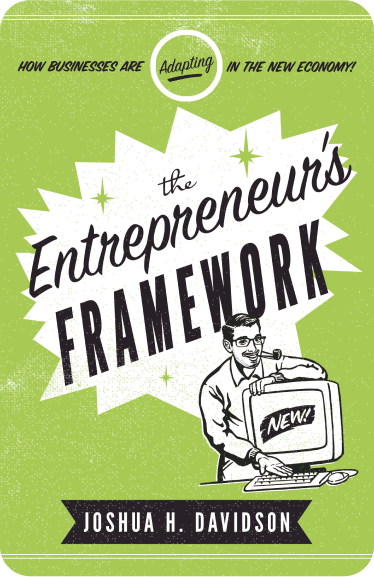This sounds like a silly question, but you would be shocked at how often a failure to approach it correctly tanks businesses. Many small business owners begin their businesses out of genuine passion and with big dreams.
Many have little or no experience as an entrepreneur or boss. This is incredibly normal and should inspire you to approach the process as one of learning, rather than dampen your fire. However, it does mean that there are likely some gaps in your perspective.
After all, a lot of people have big dreams. However, they don’t know how to build a solid foundation to make their dreams a possible reality.
A good place to start is by answering this simple question:
Does Your Business Exist To Serve You Or Your Customers?
Many small business owners begin companies due to their personal passions. While they may know how to create a certain type of product, they don’t really know how to market it.
They may have no idea if an audience even exists for it. They don’t really know anything about what the day to day operations will require either.
Some simply want to be a boss or start their own business so ‘no one can tell them what to do.’ This is an incredibly poor mindset to start a business from.
After all, even if you no longer have a manager telling you what to do directly, you still have to answer to the needs and constraints of the market. In a sense, if you own your own business, the customer is now your boss.
This creates complications. After all, in general, an effective boss will communicate clearly with you about what you have to do.
You will know what needs to be done, and whether you have done it well or not. You will likely know why you get promoted, fired, reprimanded, or rewarded.
Most customers will not directly provide you feedback, even if you ask. If they don’t like what you offer for any reason, they will simply go somewhere else. It’s likely you will never even know why.
Ego Can Make Or Break Your Business
On one hand, some level of confidence and self-belief is necessary to start your own business. Often, what separates new entrepreneurs from those who just talk endlessly about their dreams is some strength of ego.
After all, even if people tell you that you can’t do it, or it seems daunting, you have to believe in your dreams and your vision.
Jumping off into something new and being brave enough to give it a shot, even if you have no idea how it will go, takes confidence.
In many aspects of life, most people are too terrified of failure to take any risks. Even if they want something deeply, they are too scared to even try.
In order to start as an entrepreneur, your own sense of purpose and self-confidence must be stronger than your fear.
However, an over-inflated ego can also destroy your business. There is a careful balancing act here.
Being a successful business owner requires way more than just confidence. It’s also about determining if a market even exists for what you want.
This involves data collection. You also want to start small to test your idea while making a minimum initial investment properly. You also have to genuinely listen to consumers, even if you don’t like what they have to say.
Once you find your ideal customer, you need to deliver something that they genuinely need, enjoy, or otherwise find value in.
If your business is only for you, you won’t do that critical listening. It is unlikely that you will make that connection.
The Customer As Your Boss

You do not exist without consumers. Without them, your business becomes just a project or a hobby. Having a sufficient flow of customers willing to exchange money for what you offer is critical.
Customers choose every day, month, quarter, and year to find new businesses to patronize, or stick with the ones they know.
While clever marketing can reel initial customers, they stick around because of the value you provide. How you treat them is crucial.
Remember, the market is competitive. If your offering does not compete, your business will fail.
This is why so many people who start a business so ‘they can do whatever they want’ or they can ‘be the boss’ fail.
Loving what you do or offer is great. However, if consumers do not feel the same way, your business will close.
Put Data Before Emotions
Especially as many entrepreneurs begin their businesses as passion projects, this can be a tricky balance to strike.
After all, when you really love and believe in something, it can seem impossible that everyone else would not love it as much as you.
However, this tunnel vision can absolutely destroy your future prospects.
If you think everyone must love what you do because you love it, you will not make critical data-driven decisions.
For many, it is very difficult to balance their passions with genuine data and feedback. Some will even avoid doing this critical work.
They want to believe whatever they are doing will flourish, purely due to their attachment to it. They don’t want to hear or see ‘no.’
In addition, it is more likely that you will take all feedback incredibly personally and not use it appropriately.
With the rise of social media, this is a huge problem that has crushed many business owners, particularly in creative spaces.
The Right Approach to Feedback
Positive and negative customer feedback are inevitable and essential parts of running a business. Some people will love what you do, and for the same reasons that some people love your business, others might not like it.
It is also important to remember that, especially if you are a new business owner or entrepreneur, it is likely that you will make some mistakes and consumers will be caught in the crossfire.
Even if you do not personally make errors, sometimes things happen that are beyond your control. For example, if you mail a customer a product, it may break or get lost in the mail.
However, it is important to remember that these mistakes will not define you. It’s how you handle them that will define your business.
The Unfortunate Epidemic of Businesses Being ‘Messy’ Online
It’s no secret that in the current social media environment, marketing, branding, and customer service have all blended together on places like TikTok and Instagram.
While some small business owners have incredible digital marketing savvy and utilize this to build and scale impressive businesses, others are destroying their own businesses by acting in unprofessional, and sometimes even bizarre ways.
Here we will give an example of two creators and entrepreneurs with large online footprints.
One handled recent issues with their business well. One has not, and it likely contributed to the ultimate failure of their business.
A Setting Spray Snafu
YouTuber Patrick Starr is a longtime content creator with a thriving makeup line of his own, One/Size. Recently, he launched a setting spray that went viral for several reasons.
On one hand, it has been reported that Beyonce’s makeup artist used it on her while on tour.
On the other hand, some of the products were defective. A number of users posted videos on TikTok of the setting spray, which is meant to be invisible and help increase the wear of makeup, covering their entire face in white powder.
So, what did Patrick Starr do?
He posted a video appologizing, and said that his company would refund anyone who recieved a defective product.
While as a business owner, it is frustrating to receive negative feedback about your product, you cannot take that frustration out on your customers, or try to shift the blame.
As Patrick Starr did not directly manufacture the products himself, he did not directly cause these issues. It was likely a problem with the lab he used. However, since it is his brand, it became his fault in the public eye, and his issue to contend with.
And he did. Many makeup fans are impressed with how he handled the situation, turning this into a PR positive, rather than a career-ending disaster.
However, when business owners are deeply emotionally invested in their products, they do not always act rationally or take accountability for issues. An example of this is Chef Pii, of viral ‘Pink Sauce’ fame on Tiktok.
The Life and Death of ‘Pink Sauce’

Content creator Chef Pii went viral last year for her creation, known as Pink Sauce. She posted Tikoks of this vibrant peptobismol pink sauce on a variety of foods, and TikTok was obsessed.
People wanted to know how it tasted and what was in it. Unfortunately, in a rush of excitement, Chef Pii tried to capitalize off this sauce by shipping out homemade bottles. These lacked preservatives or accurate ingredient lists.
Many customers received rotten bottles of mystery Pink Sauce that had exploded or gone moldy in the mail.
Despite criticism, and even the FDA stepping in, Chef Pii has never apologized or taken accountability for her actions.
She even famously appeared on a talk show calling all of the customers who were angry that they received rancid Pink Sauce in the mail “haters.” She more or less implied that the internet conspired against her to destroy her business for no reason.
Despite all this controversy, corporation Dave’s Gourmet collaborated with Chef Pii, and even had their version of the sauce placed in Walmart.
However, this collaboration has failed. Chef Pii has claimed that she is now penniless and Dave’s Gourmet has sabotaged her.
It is more likely that many people did not even want to try anything related to Chef Pii. Her carelessness toward her customers and constant lashing out have likely soured people to her brand.
In addition, those who have tried the sauce do not seem to like it. While this sauce is no longer a hazard, many have claimed that the sauce is barely pink and lacks flavor.
Final Thoughts On Creating A Small Business That Is Truly For Your Customers
Ultimately, creating a business that is truly for your customers is not just an ethical thing to do, but the only way to gain traction and long-term loyal customers.
Consumers are trading their money for value. If you do not provide genuine value, they will not provide the cash flow which is the lifeblood of every small business.
While being passionate about what you do is critical, it can be more of an issue than an asset if you get so wrapped up in your own goals that you forget about serving your customers.
What do you think? Comment below.
Since 2009, we have helped create 350+ next-generation apps for startups, Fortune 500s, growing businesses, and non-profits from around the globe. Think Partner, Not Agency.
Find us on social at #MakeItApp’n®
















